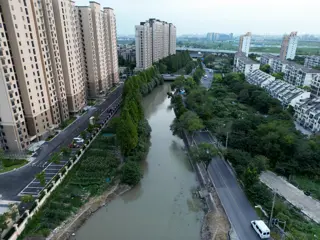 To modernise land administration, the Bruhat Bengaluru Mahanagara Palike (BBMP) launched its e-Khata system—a digital property certification process to streamline ownership verification and tax compliance. Initially praised as a forward-thinking move, its rollout has hit unexpected snags in Bengaluru’s residential real estate sector.
To modernise land administration, the Bruhat Bengaluru Mahanagara Palike (BBMP) launched its e-Khata system—a digital property certification process to streamline ownership verification and tax compliance. Initially praised as a forward-thinking move, its rollout has hit unexpected snags in Bengaluru’s residential real estate sector.
Technical Challenges
Server Delays and System Overloads
The e-Khata platform has struggled with persistent technical issues, including multiple reports of server disruptions causing long delays in application submissions. This digital infrastructure strain comes from a sudden surge in user traffic after the mandate in late 2024. Property consultants reported spending hours navigating error-prone interfaces, similar to old e-government portals.
Registration Backlog
‘In October 2024, we saw a 60% drop in property registrations due to e-Khata processing bottlenecks.’ - CREDAI Bengaluru President
Procedural Bottlenecks
Multi-Step Document Submission
The e-Khata process now requires: 1) Uploading property titles 2) Income proofs 3) Encumbrance certificates—all through separate municipal channels. This fragmentation struggles under high demand periods, creating delays in registration workflows.
Tax Rebate Ineffectiveness
BBMP’s proposed 5% property tax rebate for e-Khata adopters hasn’t incentivised fast-paced adoption due to prolonged processing times. Stakeholders describe the rebate as a ‘band-aid on bullet wounds’ when paired with systemic inefficiencies.
Market Impact
Sub-Registrar Office Slumps
Physical sub-registrar offices—once bustling with registration activities—now see a 30–50% drop in foot traffic. Real estate brokers report ‘clients abandoning deals mid-process’ to avoid long wait times for e-Khata validations.
Developer Challenges
Builders complying with e-Khata mandates face extended project approval cycles, as streamlined documentation claims clash with reality. Paradoxically, this has increased ‘paperwork burden in the name of digitisation’.
Potential Solutions
Decentralised Service Points
Expanding e-Khata access to B1 KarnatakaOne centres could ease pressure. Early trials at BangaloreOne hubs show promise but remain underutilised.
Phased Implementation
Progressive adoption schedules could prevent system overload. For new property registration, e-Khata is mandatory, while allowing legacy paper khoja for existing sales might balance transition demands.
Future Outlook
Digitisation Persistence
Despite current glitches, e-Khata remains foundational to BBMP’s long-term plan for ‘real-time property tracking and integrated municipal services’. Success hinges on resolving today’s technical and operational growing pains—a path challenging yet crucial for Bengaluru’s position as India’s real estate innovation hub.
Investor Sentiment
While e-Khata promises enhanced transparency for investors, immediate execution issues risk undermining confidence. Market analysts note that resolving these disconnects will determine whether the initiative fosters or stifles Bengaluru’s residential realty boom.